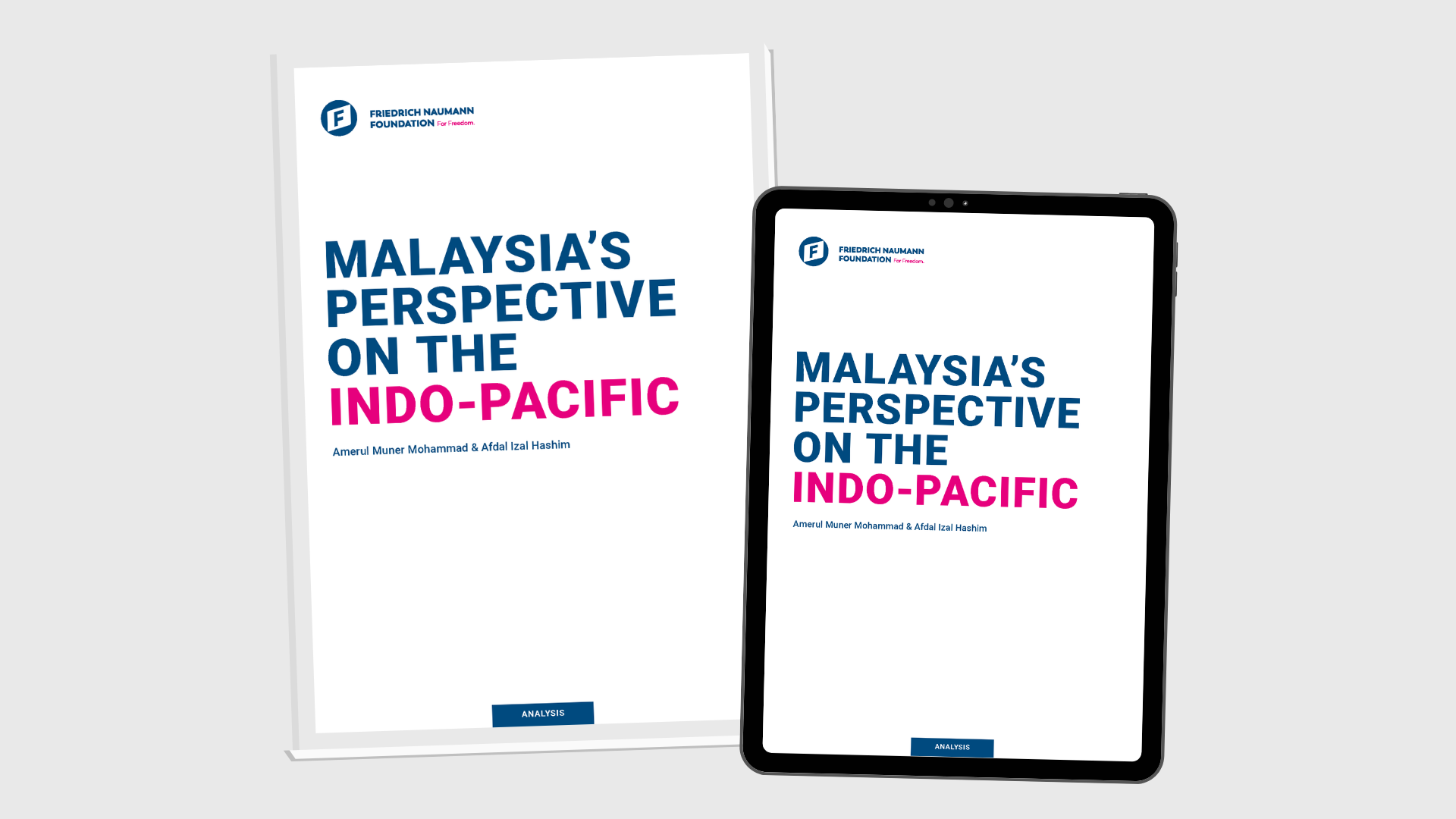Publication
MALAYSIA’S PERSPECTIVE ON THE INDO-PACIFIC

Malaysia-China Bilateral Relations
Malaysia established diplomatic relations with the People’s Republic of China two years after US President Richard Nixon’s administration normalised relations with China in 1974. Prior to that, Malaysia established a trade council with Beijing. Malaysia’s second Prime Minister, Abdul Razak, made an executive decision to follow the US and extend a hand of friendship to Chairman Mao Zedong. Despite Malaysia’s own domestic communist insurgency threat, Malaysia became the first democratically elected Southeast Asian nation to normalise relations with communist China. Malaysia’s approach regarding Malaysia-China relations was a two-pronged strategy. One was to address Malaysian ethnic Chinese with family roots, while the other was to neutralise communist terrorists who still wanted to turn Malaysia into a communist state. Malaysians of Chinese descent were questioned by the Malays on whether they were loyal to Malaysia or to ancestral China. This was all resolved when China did not recognise dual citizenship along with Malaysia and China politically denouncing the Malayan Communist Party.
The communist threat in Malaysia formally ended in 1989, when the leader of the Malayan Communist Party, Chin Peng, signed a peace treaty with the Malaysian government in Hatyai, southern Thailand. This coincided with the fall of the Soviet Union and collapse of communist regimes worldwide. It also marked the end of communist threats in Malaysia. That same year, Malaysia refrained from officially criticising China’s handling of the Chinese people’s protest at Tiananmen Square for an open and democratic society post-Cold War and remained largely silent about the situation. In some ways, China took note of the countries that did not interfere in Chinese affairs. One of ASEAN’s pillars is not meddling in domestic politics. Malaysia remained careful and maintained its status quo in managing China, bilaterally and multilaterally.
In the maritime domain, however, Malaysia takes a slightly different approach. Apart from Malaysia, ASEAN member countries that are active in bringing the issue of maritime disputes of the SCS into the ASEAN Summit are Brunei, the Philippines, Vietnam, and to some extent Indonesia. These have been a thorn in these nation’s internal politics and China’s ambiguous policy approaches to the ASEAN countries challenging the former’s claims. China has so far been successful in its divide and rule approach. Vietnam and the Philippines have traditionally been more vocal towards China, to which China has responded aggressively, as opposed to Malaysia’s Foreign Ministry’s (Wisma Putra) quieter and more diplomatically channelled protest acts. Though Malaysia joined hands with Vietnam in 2009 to protest China’s claims, China is more lenient toward Malaysia than it is towards Vietnam and the Philippines.
This paper will not go into detail about China’s actions but rather focuses on Malaysia’s reaction and position. Claims and counterclaims to the disputed maritime territory pose a vicious cycle. Among others, these issues are discussed at the Yokosuka Council of Asia Pacific Studies (YCAPS), the ISEAS, Malaysia Institute of Defence and Security (MiDAS) under MinDef Malaysia, the Maritime Institute of Malaysia (MIMA) under the Ministry of Transport Malaysia, and the RMN Sea Power Center (PUSMAS TLDM). All of these institutes have provided insightful speakers to the discussions and debates. Central to the discussion is the question why China is acting ambiguously toward Malaysia, despite Malaysia’s diplomatic approach toward China. Malaysia has found its own way to deal with China’s power aspirations in the region. This is due to Malaysia’s age-old understanding of Tianxia (Chinese: 天下), which literally means “(all) under Heaven” during the Malacca Sultanate-era. A historical Chinese cultural concept symbolising either the entire geographical world or the metaphysical realm of mortals, which later became associated with Chinese political sovereignty.[1] While Malaysia has recognised that it is a small nation, larger and more powerful nations may not need to conquer or exterminate it entirely. As indicated earlier, Malaysia became the first democratically elected ASEAN-member government to normalise diplomatic relations with China in 1974. The 40th anniversary of diplomatic relations was celebrated with great fanfare in 2014. Even the Chinese proverb “Those who drink the water must remember those who dug the well” was used to promote Malaysia-China relations. It became a symbol of the personal bond between Malaysia’s and China’s leaders. This balancing act has managed to keep China more lenient towards Malaysia than other ASEAN countries. However, in the maritime realm of SCS, things are very different. Malaysia has repeatedly advised China to exercise restraint. It adapted different channels available to respond to China’s coerciveness and aggression, including downplaying China’s actions on national news and pro-government media. Despite Malaysia’s efforts, China’s power assertion in the SCS has not halted from Malaysia claimed territories. Another point raised by Malaysian scholars is the government’s and policymakers’ hedging and balancing act, which will be addressed in the next chapter.
[1] Hayton, Bill. 2020. The Invention of China. Yale University

